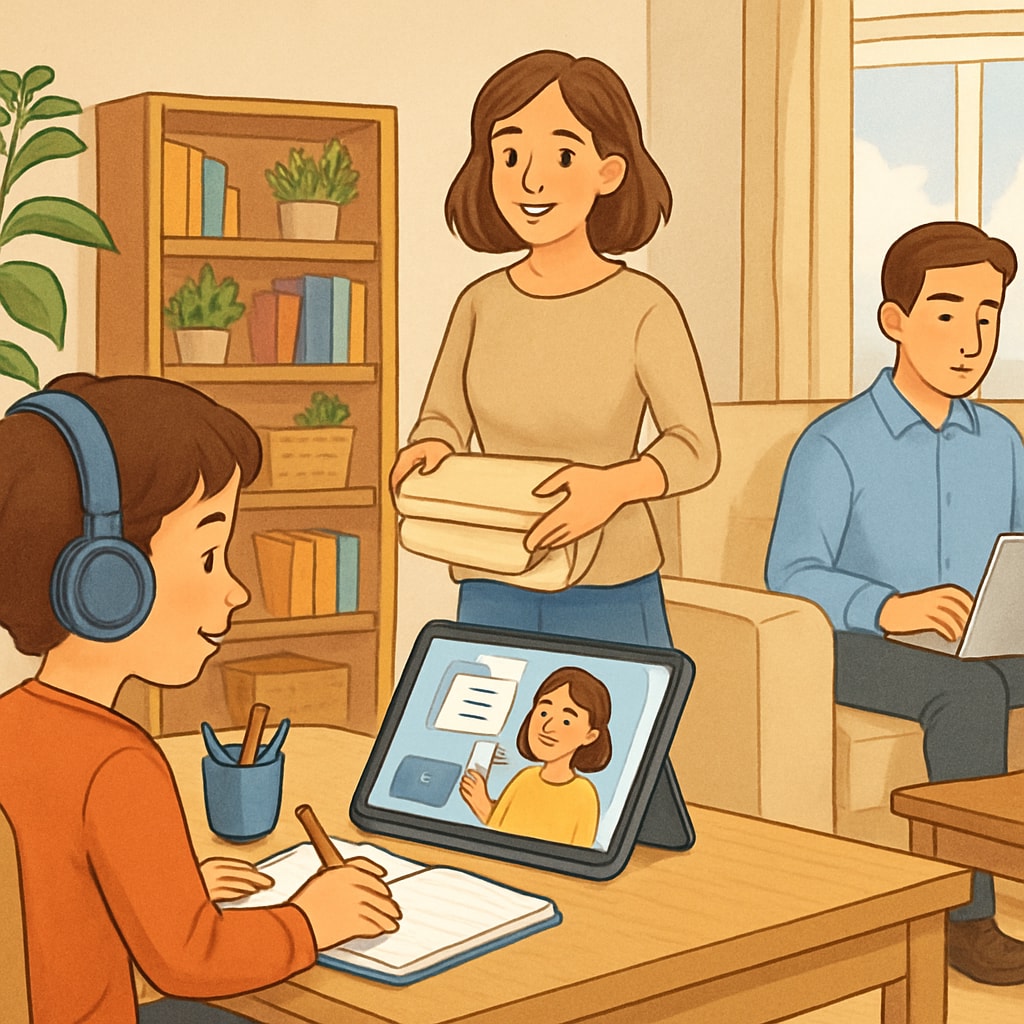The rapid growth of educational technology has given rise to alternative learning models, including online public schools. This shift is driven by various factors, as parents explore new educational methods that cater to their children’s unique needs. From personalized learning environments to greater flexibility for family life, the appeal of virtual classrooms is reshaping the traditional concept of education. But what exactly motivates parents to choose online public schools over conventional education systems?
Personalized Learning: A Key Driver Behind Online Public School Choice
One of the primary reasons parents are turning to online public schools is the ability to offer personalized learning experiences. Unlike traditional classrooms, where teachers must cater to a diverse group of students, virtual platforms allow for tailored lesson plans and pacing that suit individual learning styles. For instance, students struggling with math can spend extra time mastering foundational concepts, while those excelling in science can explore advanced topics.
Moreover, online public schools often provide access to adaptive learning tools. These technologies analyze students’ progress and dynamically adjust the curriculum to address their strengths and weaknesses. As a result, children receive an education that is uniquely suited to their needs, fostering both academic growth and confidence.
Learn more about personalized learning on Wikipedia.

Flexibility and Lifestyle Compatibility for Modern Families
Another significant factor influencing parental decisions is the flexibility offered by online public schools. Modern families often juggle demanding schedules, including dual-career households, extracurricular activities, and frequent relocations. Virtual classrooms provide a solution by allowing students to learn from anywhere and at any time, eliminating the constraints of rigid school hours and locations.
For families with children pursuing competitive sports, arts, or other specialized interests, this flexibility is invaluable. It ensures that education can adapt to their lifestyles without compromising academic rigor. Additionally, online public schools often offer a wider range of course options, enabling students to explore niche subjects not typically available in traditional schools.
Read more about the benefits of online education on Britannica.

Addressing Safety Concerns and Health Considerations
In recent years, concerns about student safety and health have also driven the shift toward online public schools. Issues such as bullying, school violence, and the spread of infectious diseases have made parents more cautious about traditional classroom settings. Virtual learning environments offer a safe alternative, where children can focus on academics without these external pressures.
Additionally, students with chronic illnesses or disabilities often find online education to be a more accommodating option. By learning from home, they can manage their health needs while staying on track academically. This inclusivity is another reason why online public schools are gaining traction among diverse family groups.
The Role of Technology in Shaping the Future of Education
The rise of online public schools is closely tied to advancements in educational technology. From interactive video lessons to real-time progress tracking, these tools are transforming how students engage with learning materials. Parents see these innovations as an opportunity to provide their children with a 21st-century education that prepares them for a tech-driven world.
Furthermore, many online public schools integrate collaborative platforms where students can work on group projects and interact with peers, ensuring that social learning remains an integral part of the experience. As technology continues to evolve, the gap between online and traditional education is narrowing, making virtual classrooms a viable and attractive option.
Conclusion: A Complement, Not a Replacement
While online public schools offer numerous benefits, they are not intended to replace traditional education entirely. Instead, they serve as a complementary option for families seeking alternative solutions to meet their unique needs. By focusing on personalized learning, flexibility, safety, and technological integration, virtual classrooms are providing a robust educational framework that aligns with modern lifestyles.
As more parents evaluate their choices, it’s clear that online public schools are here to stay. They represent a growing acknowledgment that education is not a one-size-fits-all endeavor, and the future of learning may very well lie in a hybrid model that combines the best of both worlds.
Readability guidance: The article maintains short paragraphs, includes lists for clarity, and uses transition words to ensure smooth flow. It balances factual information with engaging insights, making it accessible for a general audience. Passive voice and long sentences are minimized for better readability.


